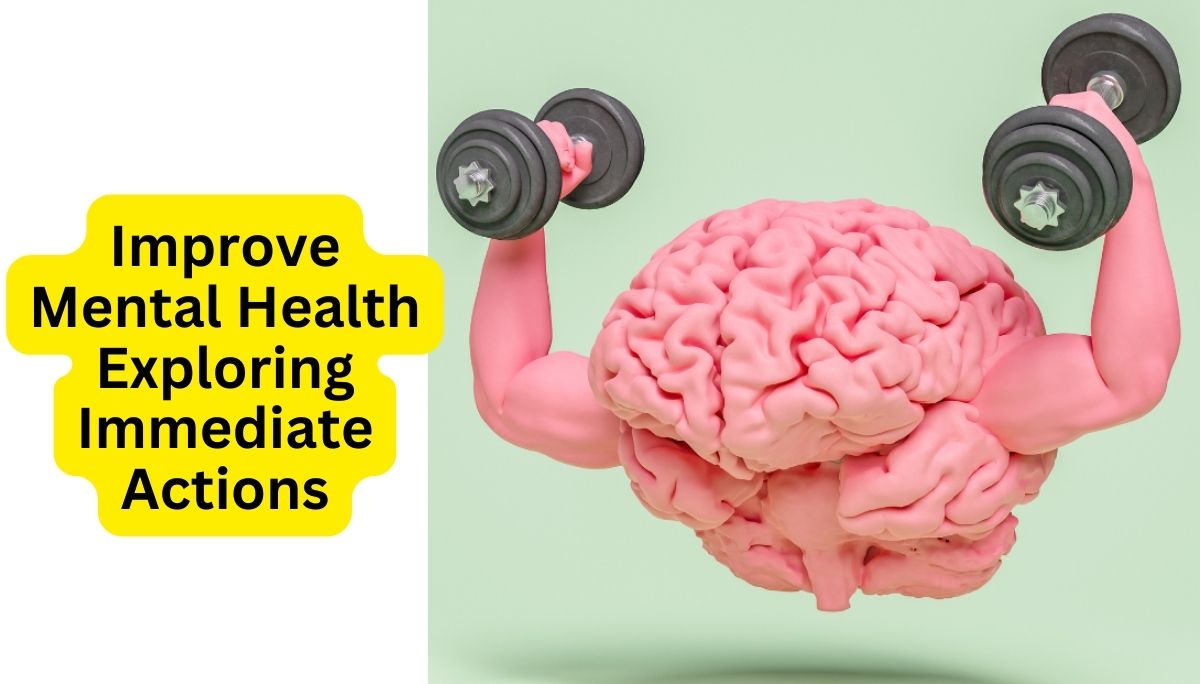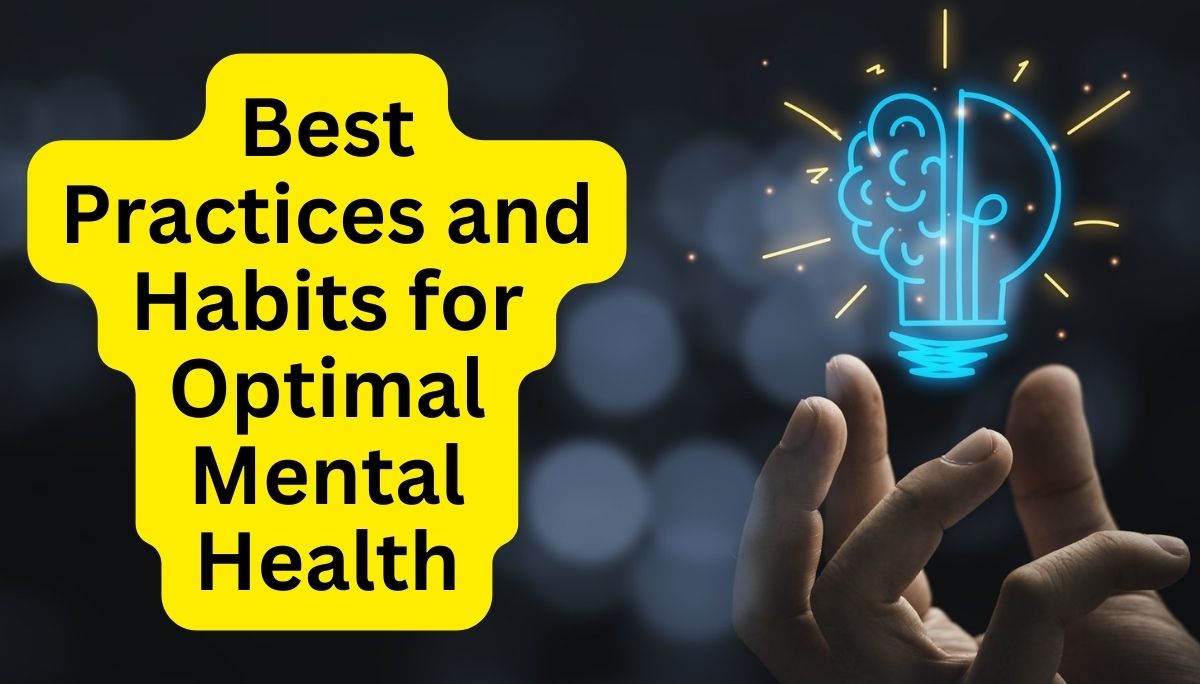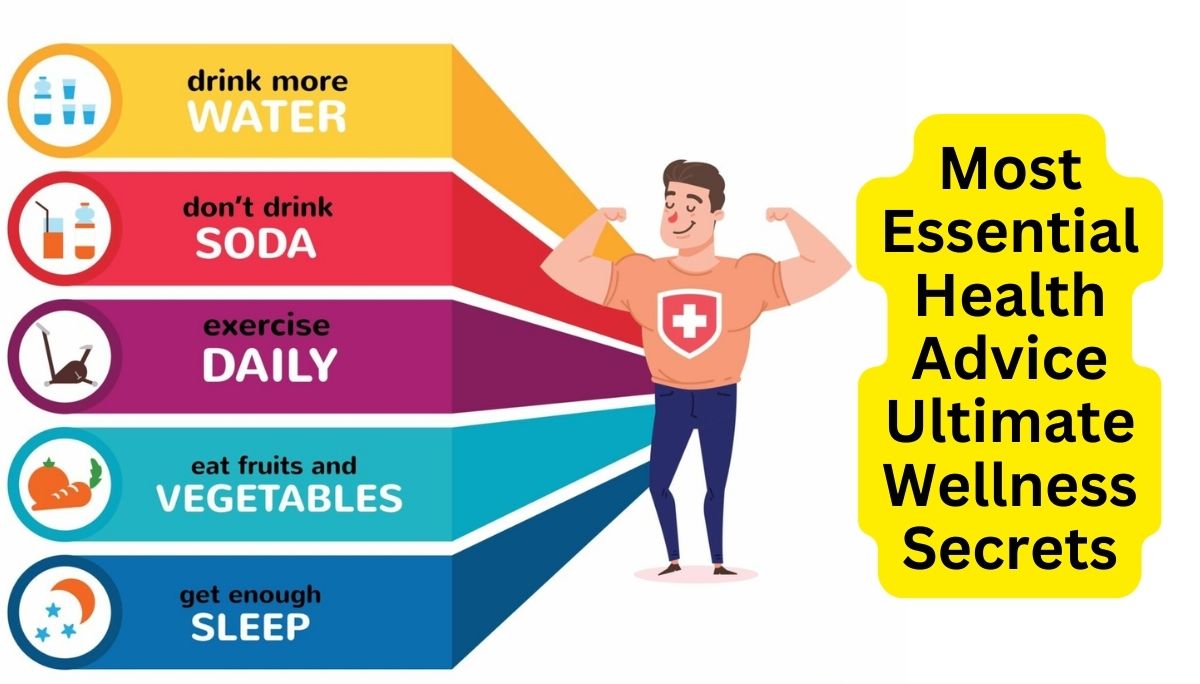Improve Mental Health – Exploring Immediate Actions to Enhance Overall Mental Health
In today’s fast-paced world, it’s easy to overlook the importance of mental well-being amidst the hustle and bustle of daily life. However, prioritizing your mental health is essential for living a fulfilling and balanced life. Fortunately, there are simple steps you can take starting today to improve your mental health overall. Let’s explore some effective strategies to nurture your mind, boost resilience, and enhance your overall well-being.

Table of Contents
The Importance of Mental Health
In our fast-paced, modern world, it’s easy to neglect the importance of mental health. We often prioritize physical well-being, but fail to recognize the profound impact our mental state has on our overall quality of life. Just like tending to a garden, nurturing our mental well-being requires consistent effort and care. By taking small, simple steps each day, we can cultivate a healthier, more resilient mind that serves as a foundation for a fulfilling and joyful life.
Embrace Mindfulness and Presence
One of the most powerful tools we have at our disposal for improving mental health is the practice of mindfulness. By cultivating a state of present-moment awareness, we can break free from the endless cycle of worrying about the future or ruminating on the past. Mindfulness allows us to fully experience and appreciate the here and now, reducing stress and anxiety while fostering a sense of inner calm and clarity.
Start your mindfulness journey by incorporating simple practices into your daily routine, such as deep breathing exercises or mindful walking. For guided meditations and resources, explore the UCLA Mindful Awareness Research Center, which offers a wealth of information and tools to help you develop a consistent mindfulness practice.
Move Your Body, Uplift Your Mind
Exercise is not only beneficial for physical health but also plays a crucial role in supporting mental well-being. When we engage in physical activity, our bodies release endorphins, the feel-good chemicals that can boost our mood, reduce stress, and even alleviate symptoms of depression and anxiety.
Find an activity that you genuinely enjoy, whether it’s going for a brisk walk in nature, trying a new dance class, or exploring the world of yoga. The key is to make movement a regular part of your routine, aiming for at least 150 minutes of moderate-intensity exercise per week, as recommended by the CDC’s Physical Activity Guidelines for Americans.
Nourish Your Mind with Positivity
Our thoughts have a profound impact on our mental well-being. By consciously cultivating a more positive mindset, we can reshape our perspective and navigate life’s challenges with greater resilience and joy. Start by practicing gratitude, focusing on the things you’re grateful for each day, no matter how small. Additionally, surround yourself with uplifting media, inspirational quotes, and affirmations that reinforce your self-worth and potential.
For a daily dose of positivity, check out the Positivity Blog, which offers practical tips and insights on cultivating a more positive mindset and embracing a life of joy and fulfillment.
Cultivate Meaningful Connections
Humans are social beings, and meaningful connections with others play a vital role in our mental health and overall well-being. Make time to nurture your relationships with loved ones, engage in conversations that nourish your soul, and seek out opportunities to connect with like-minded individuals who share your values and interests.
If you’re feeling isolated or struggle with building connections, consider joining a local community group, club, or volunteering organization. Engaging in activities that align with your passions and values can provide a sense of purpose and belonging, both of which are essential for mental well-being.
Frequently Asked Questions: Improve Mental Health
Q: How long does it take to see improvements in mental health?
A: The timeline for seeing improvements in mental health can vary from person to person, as it depends on various factors such as the severity of any underlying conditions, consistency in implementing positive habits, and individual resilience. However, many people report feeling the benefits of practices like mindfulness, exercise, and positive thinking within a few weeks of consistent effort. Remember, nurturing mental well-being is a journey, and patience and self-compassion are key.
Q: Can mental health practices help with specific conditions like anxiety or depression?
A: While not a substitute for professional treatment, incorporating practices like mindfulness, exercise, and cognitive-behavioral techniques can be helpful in managing symptoms of conditions like anxiety and depression. However, it’s essential to consult with a mental health professional for proper diagnosis and guidance, as they can provide personalized support and, if necessary, recommend additional treatment options.
Q: How can I stay motivated to maintain a positive mindset?
A: Cultivating a positive mindset is an ongoing practice, and there may be days when it feels more challenging than others. Surround yourself with reminders and sources of inspiration, such as affirmations, uplifting quotes, or a gratitude journal. Additionally, celebrate small wins and acknowledge your progress, no matter how incremental it may seem. Remember, consistency is key, and each day presents a new opportunity to nurture your mental well-being.
Q: Can social connections really impact mental health?
A: Absolutely! Humans are inherently social creatures, and meaningful connections with others play a crucial role in our mental well-being. Loneliness and social isolation have been linked to increased risk of depression, anxiety, and other mental health issues. By cultivating strong, supportive relationships and engaging in activities that foster a sense of community and belonging, we can nurture our mental health and overall quality of life.
Q: How can I tell if I’m struggling with my mental health?
A: Common signs of mental health issues include changes in mood, appetite, sleep patterns, energy levels, and concentration. If you’re experiencing persistent feelings of sadness, anxiety, or hopelessness, it’s essential to seek support from a mental health professional.
Q: Are there any online resources or apps that can help improve mental health?
A: Yes, there are numerous online resources and mobile apps designed to support mental health and well-being, including meditation apps, mood tracking tools, and virtual therapy platforms. Explore options that resonate with you and incorporate them into your daily routine.
Q: What should I do if I’m feeling overwhelmed or stressed?
A: If you’re feeling overwhelmed or stressed, it’s essential to prioritize self-care and reach out for support. Practice relaxation techniques, such as deep breathing or progressive muscle relaxation, and consider seeking support from a therapist or counselor who can help you develop coping strategies.
Q: How can I incorporate mental health practices into a busy schedule?
A: Start small and be consistent. Even just a few minutes of mindfulness, positive affirmations, or light exercise can have a significant impact on your mental well-being. Look for opportunities to integrate these practices into your daily routine, such as practicing deep breathing exercises during your commute, going for a short walk during your lunch break, or setting aside a few moments each morning for reflection and gratitude.
Remember, nurturing your mental well-being is an ongoing journey that requires patience, self-compassion, and a commitment to prioritizing your overall well-being. By incorporating simple, practical steps into your daily routine, you can cultivate a healthier, more resilient mind that serves as a foundation for a fulfilling and joyful life. Embrace the power of mindfulness, movement, positivity, and meaningful connections, and watch as your mental well-being flourishes.






